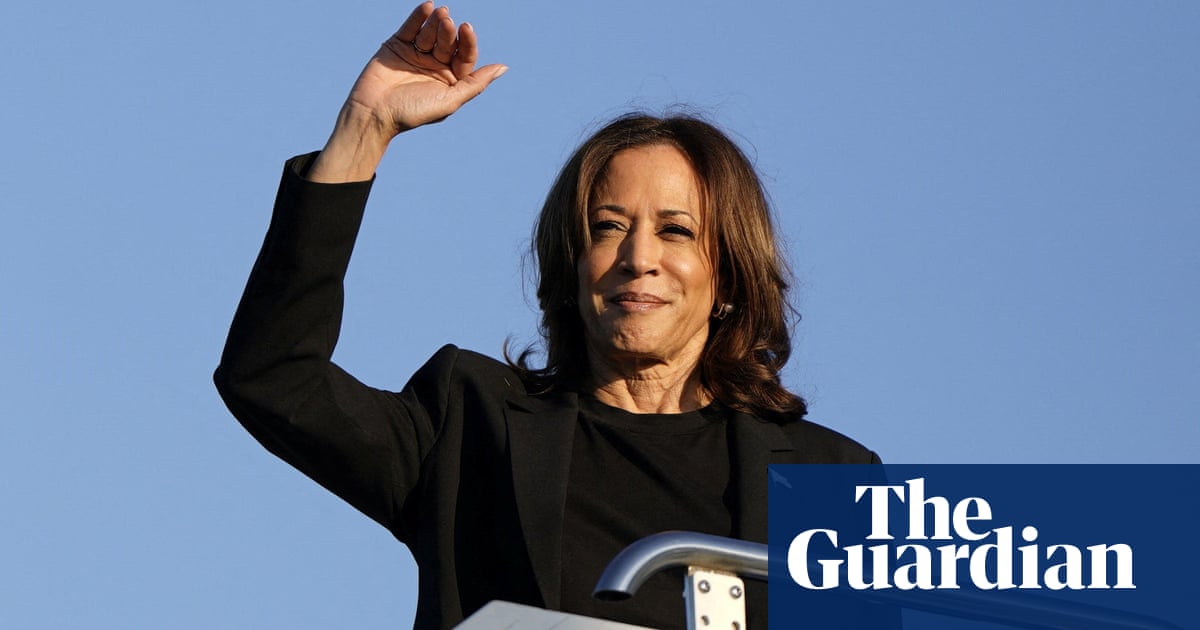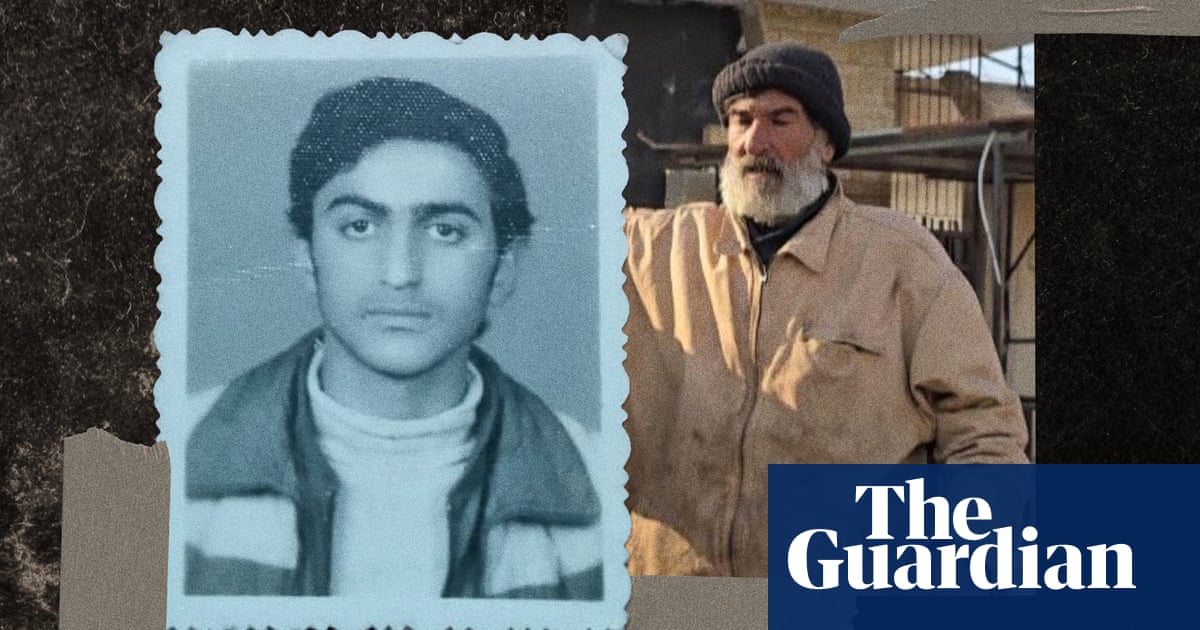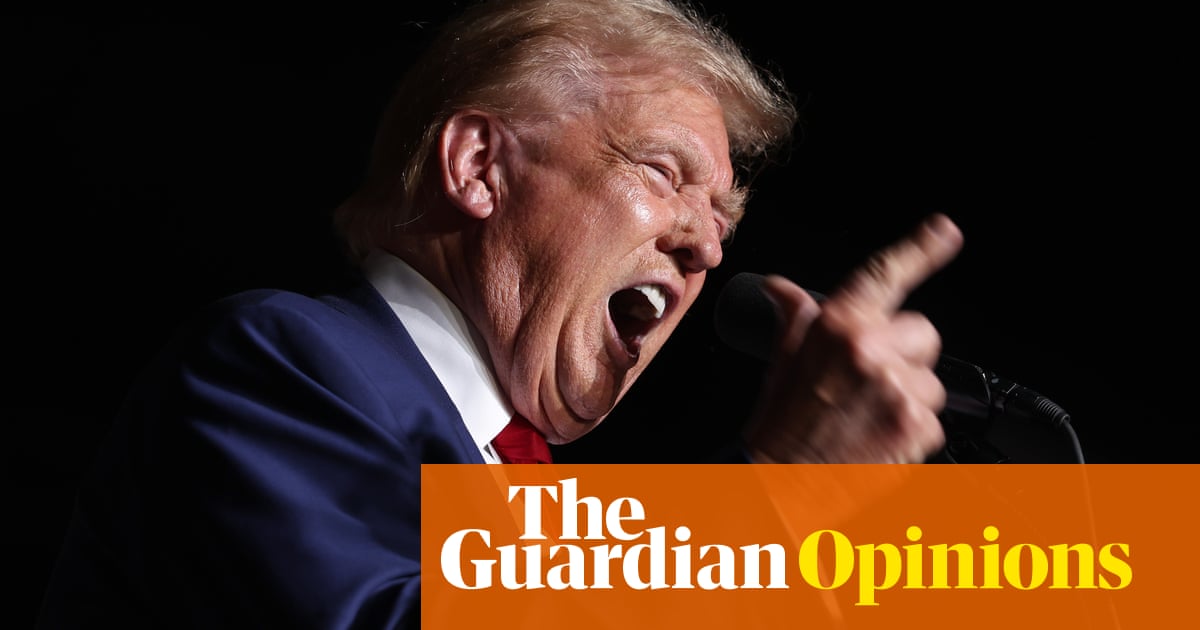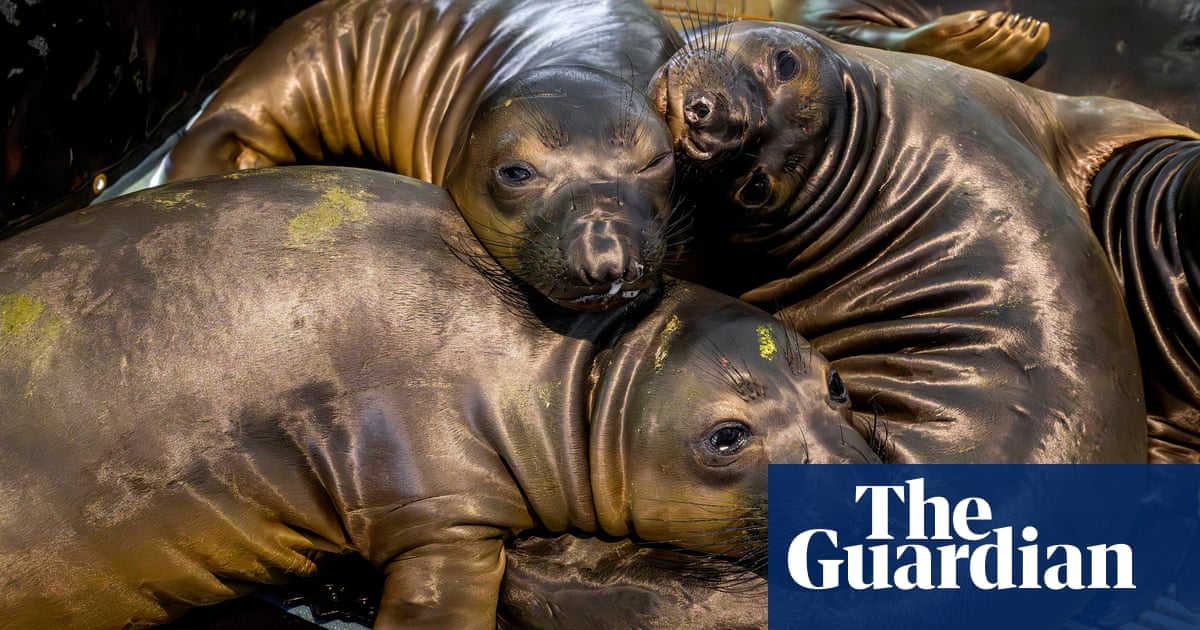Kamala Harris has embarked on a week-long media blitz, hurtling from TV studios and late-night shows to podcast interviews as she seeks to gain an edge over Donald Trump in the US election’s key battleground states that remain nail-bitingly close.
The vice-president’s decision to face a raft of largely friendly media outlets came as the campaigns entered the final 30 days. More than 1.4 million Americans have already cast their ballots in early voting across 30 states.
The Democratic nominee’s whirlwind media tour has been carefully crafted for maximum reach and minimum risk. Harris has talked to the CBS News show 60 Minutes, along with the popular podcast Call Her Daddy.
On Tuesday she hits the media capital, New York, for appearances on ABC News’s daytime behemoth The View and the Howard Stern Show, followed by a recording with late-night host Stephen Colbert.
The first of a flurry of comments from Harris was put out by 60 Minutes on Sunday before a full broadcast on Monday. Harris will appear alone, after Trump declined to be interviewed by the election special which has been a staple of US election coverage for more than half a century.
In a short clip released by 60 Minutes, Harris was asked whether the Biden-Harris administration had any sway over the actions of Benjamin Netanyahu, the hardline prime minister of Israel who appears not to listen to Washington. Asked whether the US had a “real close ally” in Netanyahu, she replied: “With all due respect, the better question is: do we have an important alliance between the American people and the Israeli people? And the answer to that question is yes.”
Since Harris’s meteoric propulsion as Democratic presidential nominee after Joe Biden stepped aside, her relative avoidance of press or TV interviews has become a point of contention on the campaign trail. Republican leaders and pundits on Fox News routinely accuse her of being media-shy.
This week’s blitz is designed to counter that impression, while reaching large audiences focused on demographic groups which will be central to Harris’s chances of winning in November. Call Her Daddy is Spotify’s most-listened to podcast among women, while The View is the number one ranked daytime talk show with 2.5 million average viewers, again heavily weighted towards women.
Meanwhile Colbert’s show on CBS is the highest rated late-night talk show attracting large numbers of younger viewers aged 18 to 49 – another critical demographic on Harris’s target list.
Harris’s running mate, the Democratic governor of Minnesota Tim Walz, is also making his own media scramble which began on Sunday, with him entering less comfortable territory on Fox News Sunday. He was questioned about the pro-abortion law that he signed in his state, and also asked to clarify the occasions on which he has misrepresented his record.
That included a comment that he had carried weapons in war when he had not, and his classifying the treatment that he and his wife received to have a child as IVF when it was in fact a different type of fertility treatment.
At last week’s vice-presidential debate Walz recognised his missteps, calling himself a “knucklehead”.
Walz told Fox News Sunday: “To be honest with you, I don’t think American people care whether I used IUI or IVF, what they understand is that Donald Trump would resist these things. I speak passionately … I will own up when I misspeak and when I make a mistake.”
As the contest enters its final month, the Guardian’s latest tracker of opinion polls shows Harris up on Trump by three percentage points nationally. In the more telling test of the seven battleground states that will decide the outcome, though Harris is ahead in five of them, the margin remains essentially too close to call.
Both candidates and their running mates are speeding up their frantic dash around the seven states: Arizona, Georgia, Michigan, Nevada, North Carolina, Pennsylvania and Wisconsin. Harris and Walz will be in Arizona this weeks, where early voting begins on Wednesday.
On Thursday, the Democratic ticket will gain extra ballast when former president and campaigning superstar Barack Obama kicks off a round of stump appearances in the all-important swing state, Pennsylvania. He will begin in Pittsburgh, and will then travel across the country on Harris’s behalf, campaign aides have said.
after newsletter promotion
Trump was scheduled to hold a rally in Juneau, Wisconsin, on Sunday afternoon, a day after he made a pointed return to the fairgrounds in Butler, Pennsylvania, where he came close to being assassinated on 13 July. Trump and his younger son Eric used the occasion to spread the baseless claim that the Democrats had been behind the attempt on his life.
“They tried to kill him, it’s because the Democratic party can’t do anything right,” Eric Trump said. Billionaire Elon Musk also appeared on stage.
On Sunday, Mike Johnson, the Republican speaker of the US House, was asked by ABC News’s This Week whether such comments were responsible amid mounting fears of political violence in the build up to the 5 November election. Johnson sidestepped the question, saying he had not heard the full speeches.
The speaker also notably refused to answer whether Trump had lost the 2020 election, in the wake of Trump’s ongoing lies that he was the actual victor. “This is the game that is always played by the media with leading Republicans, it’s a gotcha game, and I’m not going to engage in it,” Johnson said.
The former president’s wife, Melania Trump, sat down for an interview with the Fox News host Maria Bartiromo. She was asked given how close her husband had come to being shot in Butler whether she trusted the top officials of the FBI, CIA and other federal agencies who “appeared to be against President Trump and yourself from day one”.
Melania Trump replied: “It’s hard to say who you really trust. You want to, but it’s always a question mark.”
Melania Trump, who is promoting her book, Melania, also spoke about her pro-abortion stance which she revealed in the volume. She said her husband had always known her convictions.
“He knew my position and my beliefs since the day we met, and I believe in individual freedom. I want to decide what I want to do with my body. I don’t want government in my personal business,” she said.



